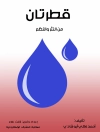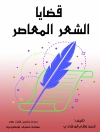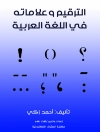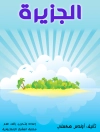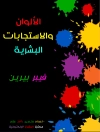Investigates what literary strategies African writers adopt to convey the impact of climate transformation and environmental change.
This special issue examines the ways fiction and poetry engage with environmental consciousness, and how African literary criticism addresses the implications of global environmental transformations. Does environmentalist literature offer new possibilities for critical thinking about the future? What constitutes environmentalist fiction and poetry? What kind of texts, themes and topics does climate writing include? Does any text in which the environment features become available to environmentalist criticism? In their engagement with the diverse genres, themes and frameworks through which contemporary African writers address topics including urbanisation, cross-species communication, nature and climate change, contributors to this special issue help to define African environmental writing. They look at the literary strategies adopted by creative writers to convey the impact of environmental transformationin narratives that are historically informed by a century of colonialism, nationalist political activism, urbanisation and postcolonial migration. How does environmental literature intervene in these histories? Can creative writers, with their powerfully post-human and cross-species imaginations, carry out the ethical work demanded by contemporary climate science? From Tanure Ojaide’s and Helon Habila’s attention to environmental decimation in the Niger Delta through to Nnedi Okorafor’s and Kofi Anyidoho’s imaginative cross-species encounters, the special issue asks how literature mediates the specificities of climate change in an era of global capitalism and technological transformation, and what the limits of creative writing and literary criticism are as tools for discussing environmental issues.
This volume also includes a Literary Supplement.
Guest Editors: Cajetan Iheka (Associate Professor of English, Yale University) and Stephanie Newell (Professor of English, Yale University)
Series Editor: Ernest N. Emenyonu (Professor of Africana Studies at the University of Michigan-Flint)
Reviews Editor:Obi Nwakanma (Fellow, Department of English University of Central Florida)
Table des matières
Introduction: Itineraries of African Ecocriticism & Environmental Transformations in African Literature – Cajetan Iheka
Introduction: Itineraries of African Ecocriticism & Environmental Transformations in African Literature – Stephanie Newell
Literary Totemism & its Relevance for Animal Advocacy: A Zoocritical Engagement with Kofi Anyidoho’s Literary Bees – Jerome Masamaka
Reading for Background: Suyi Davies Okungbowa’s
David Mogo Godhunter & ‘The End of the World as We Know It’ – Louise Green
Poetics of Landscape: Representation of Lagos as a ‘Modernising’ City in Nigerian Poetry – Sule Emmanuel Egya
Poetic Style & Anthropogenic Ecological Adversity in Steve Chimombo’s Poems – Syned Mthatiwa
Female Autonomy in Kaine Agary’s
Yellow Yellow – Sandra C. Nwokocha
Local Collisions:
Oil on Water, Postcolonial Ecocriticism & the Politics of Form – Katherine E. Hummel
‘It is the Writer’s Place to Stand with the Oppressed’: Anthropocene Discourses in John Ngong Kum Ngong’s
Blot on the Landscape &
The Tears of the Earth – Eunice Ngongkum
Black Atlantic Futurism & Toxic Discourses in Nnedi Okorafor’s
The Book of Phoenix: An Ecocritical Reading – Michelle Clarke
Readings into the Plantationocene: From the Slave Narrative of Charles Ball to the Speculative Histories of Octavia Butler & Nnedi Okorafor – James Mc Corkle
Interview with Kenyan Novelist, Yvonne Owuor – Ng’ang’a Wahu-Muchiri
LITERARY SUPPLEMENT Poems & Short Stories
TRIBUTE Pa Gabriel Okara (1918 – 2019) – An African Literary Colossus on Ancestral Journey – Psalms E. Chinaka
REVIEWS edited by Obi Nwakanma
A propos de l’auteur
Ernest N. Emenyonu is Professor Emeritus of Africana Studies at the University of Michigan-Flint, USA. He is Series Editor of African Literature Today. His publications include A Companion to Chimamanda Ngozi Adichie (2017), Emerging Perspectives on Nawal El Saadawi (2010), and the children’s book Uzoechi: A Story of African Childhood (2012).


